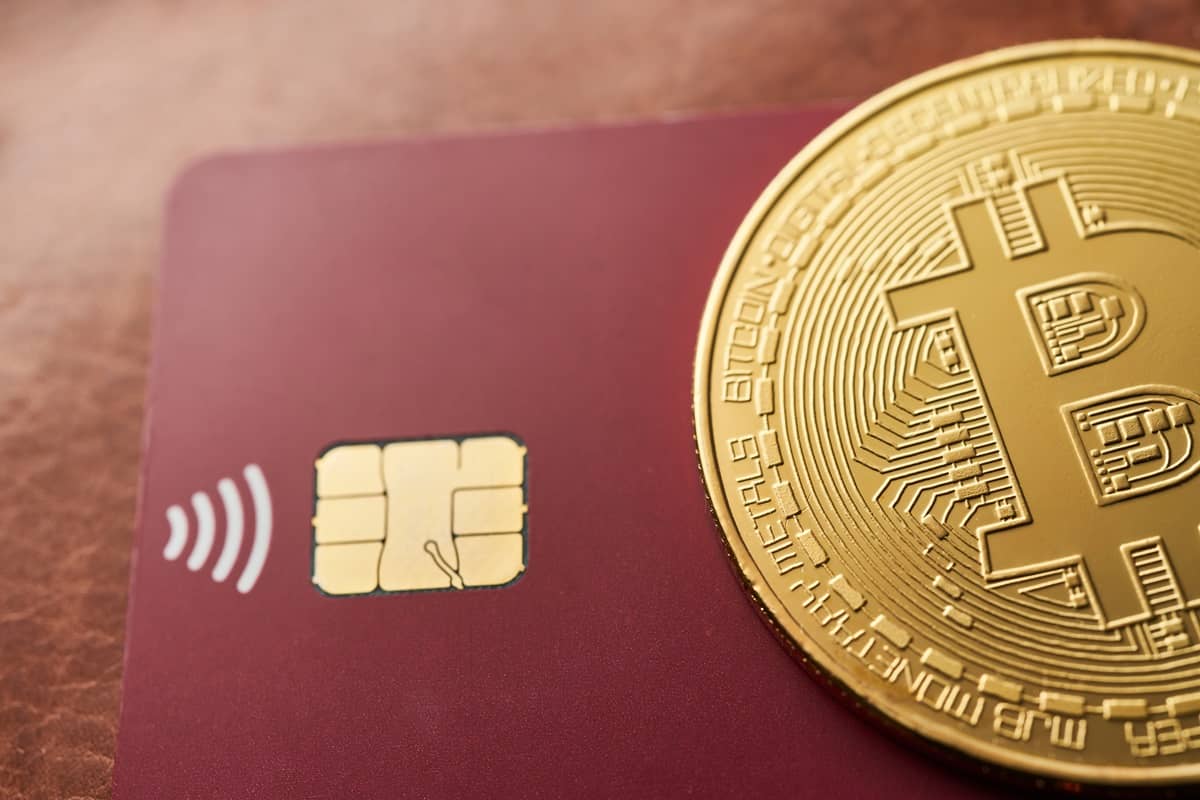
If you've dipped your toes into the world of cryptocurrency, you've likely come across the term 'smart contracts.' A crucial part of blockchain technology, these self-executing contracts play a pivotal role in the transaction processes of cryptocurrencies. This article will guide you through the intricacies of smart contracts and their role in the realm of cryptocurrency trading. From the basic concept to real-world applications, potential benefits, and challenges, we'll cover everything you need to know to make informed crypto trading decisions. Here's your thorough look into the world of smart contracts in cryptocurrency trading.
Understanding Blockchain and Smart Contracts Simplified
Let's delve a bit deeper into the fascinating world of smart contracts; you'll find that they're not as complex as they appear on the surface. Simply put, a smart contract is a self-executing contract where the terms of agreement between the buyer and seller are directly written into lines of code. This unique blend of law and technology is what makes smart contracts an essential component of many blockchain platforms, including the renowned Ethereum blockchain.
Now, how does blockchain come into play? Blockchains can be described as public, decentralized digital ledgers that record every transaction made with a certain cryptocurrency. Think of it as a sophisticated type of database that is maintained by multiple participants and is both transparent and tamper-proof.
Union of Blockchain and Smart Contracts
You might wonder: what's the relationship between blockchain and smart contracts? Well, they're a truly dynamic duo. Smart contracts operate on the blockchain, using its secure and transparent nature to ensure the trustworthiness of transactions. The moment a smart contract is deployed on the blockchain, it can't be altered, creating a unparalleled level of security and trust among parties involved.
- Smart Contracts: These are contracts that are encoded into the blockchain. Not changeable, reliable, and executed automatically when contractual conditions are met.
- Blockchain: A decentralized and distributed digital ledger utilized to record transactions across numerous computers. Known for its security, it provides a platform upon which smart contracts can operate.
In a nutshell, blockchain provides the perfect platform for smart contracts to shine, facilitating secure, seamless, and efficient cryptocurrency trades. Stay tuned as we uncover how this enthralling tech-duo is revolutionizing the world of cryptocurrency trading!
The Mechanics of Smart Contracts
Imagine smart contracts as ingenious self-executing business protocols embedded in blockchain transactions. Knowing the mechanics or how they work opens the door to truly understanding their value in cryptocurrency trading. Let's dive into the interesting world of smart contracts!
A Tale of "IF-THEN" Logic
At their core, smart contracts are built around the concept of conditional logic, akin to the "IF-THEN" rules you learned in school. This straightforward principle is the trigger that initiates the execution of the contract. BUT HOW? Let's illustrate:
- IF you transfer a certain amount of cryptocurrency into a contract account,
- THEN the intended recipient will get an automatic acknowledgment of the transfer.
Simple, right? Well, this simplistic example is merely the tip of the IoT iceberg as the conditional logic can be as complex and multifaceted as required by a particular transaction.
Executing Smart Contracts
Now that the IF-THEN principle is established, how the contract operates is the next piece of the puzzle. Smart contracts are typically deployed on a blockchain network and remain dormant until the specified conditions are met.
Think of a smart contract as a sleeping volcano. It's peaceful and unassuming on the surface but springs into action once triggered.
Once the conditions stipulate in the contract are met, the contract comes alive, automatically executing the agreed-upon terms. There's no need for manual intervention or third-party approval. The functioning of a smart contract is primarily controlled by the inherent rules inscribed into it.
Data Verification and Execution
There is a key thing to note here: Smart contracts are not blind executors. They usually work in tandem with data oracles - external data feeds that supply real-world data to the smart contract. The contract verifies the data with the conditional rules set up in it. If the conditions are satisfied, the contract self-executes as designed.
There you have it! You now understand the mechanics of smart contracts – why they exist, how they operate, and where they fit into cryptocurrency trading. The value such contracts bring to the often volatile and uncertain world of crypto is immeasurable, ensuring confidence, transparency, and accuracy in every transaction.
Smart Contracts in Cryptocurrency: An Overview
A smart contract is a game-changer in the cryptocurrency universe. It adds a different level of functionality to digital transactions, including those involving cryptocurrencies. Think for a moment about your traditional financial contracts which are intermediated by a third party such as a bank or a financial institution. Now, imagine a scenario where a financial agreement is self-executing, self-enforcing, and can operate without intermediaries. Sounds intriguing, right? That's what a smart contract essentially offers.
Smart Contracts and Cryptocurrencies: The Connection
Now, let's talk about how smart contracts fit into the world of cryptocurrency trading. Cryptocurrencies are much more than just digital currencies. They represent a whole new digital economic system. A system where decentralization, transparency, and security are primary goals. Smart contracts contribute significantly to achieving these goals.
In a cryptocurrency transaction, a smart contract acts as a trusted intermediary. Except, there is no real intermediary. It's the smart contract itself that verifies and enforces the transaction based on predefined conditions. An important point to note is that transactions, ones that are executed through smart contracts get recorded onto the blockchain. This addition provides a transparent and immutable record of the transaction, contributing to the credibility and security of the cryptocurrency trading ecosystem.
The Role of Smart Contracts in Cryptocurrency Transactions
But how exactly does a smart contract work in a cryptocurrency transaction? Let's break it down.
- Creation: A smart contract starts with coding. Developers write the conditions and rules of the contract into the code. These conditions could include parameters such as the price of a cryptocurrency, time of transaction, etc.
- Deployment: The smart contract is deployed onto the blockchain network. All members of the network have access to the open-source contract, ensuring transparency.
- Execution: When the pre-agreed conditions are met, the smart contract automatically executes the transaction. This could mean, transferring cryptocurrency from one wallet to another.
- Recording: Post execution, the details of the transaction are recorded onto the blockchain, providing a traceable and irreversible record.
So, that’s a brief rundown of how smart contract adds a new dimension of trust, efficiency, and security to cryptocurrency trading. In the sections to follow, we will delve deeper into the role, benefits, and challenges of smart contracts in the realm of crypto trading.
Advantages of Using Smart Contracts in Crypto Trading
The use of smart contracts in cryptocurrency trading opens a world of advantages that pave the way for more efficient, reliable, and secure transactions. In the fascinating world of crypto assets, smart contracts function as essential links that ensure the flow of operations without hiccups. Let’s explore some of these advantages:
Accessibility and Financial Inclusion
Smart contracts foster financial inclusion and accessibility, particularly for people without access to traditional banking systems. These electronic, self-executing contracts make it possible for anyone, anywhere in the world, to interact with the global economy through cryptocurrencies.
Automated, Efficient Transactions
Smart contracts automatize processes that are traditionally manual, such as verifying and executing transactions. This automation can lead to significant time and cost savings for people trading cryptocurrencies. It's like having your own personal assistant that takes care of the nitty-gritty while you focus on the bigger picture.
Cutting the Middleman
By design, cryptocurrencies and smart contracts operate on decentralized networks, eliminating the need for intermediaries such as banks or brokers. This means you get to keep more of your hard-earned money. No middlemen to share your profits with!
Enhanced Security
Blockchain's inherent security mechanisms protect smart contracts. Complex cryptographic techniques safeguard every transaction, making it nearly impossible to alter, delete, or hack the contract terms. Even better, backtracking transactions for auditing purposes is a breeze thanks to blockchain's straightforward record-keeping feature.
Contractual Confidence
With conditional "IF-THEN" stipulations, smart contracts offer you a higher level of contractual confidence. As long as the conditions are met, you can be sure of the contract’s execution. No more worrying about the other party not fulfilling their end of the deal.
Potential Risks and Challenges of Smart Contracts in Crypto Trading
While smart contracts bring numerous advantages to cryptocurrency trading, there are nevertheless a few potential risks and challenges that may arise when utilizing them. Both traders and developers need to be aware of those to better navigate the crypto landscape.
Code Limitations and Vulnerabilities
Smart contracts are inherently as reliable and secure as the code that forms them. This means that any bugs or vulnerabilities within the contract's code could lead to significant issues. This could include an improperly executed trade or even a malicious attack by external actors. Smart contract developers need to be vigilant and methodical in their coding practices to minimize these risks.
Immutability
Immutability, while one of blockchain technology's strong points, can also be considered a downside in some cases. Once a smart contract is executed, it cannot be modified or undone. If a mistake is made in the formulation of the contract, fixing it can be complex or even impossible.
Legal Uncertainty
As it is a relatively new technology, legal aspects related to smart contracts can be quite unclear in many jurisdictions. For instance, in some countries, laws have not been defined clearly regarding the status and enforceability of smart contracts, leading to potential regulatory and legal issues.
Lack of Central Authority or Arbitration
The decentralized nature of smart contracts, while serving as a huge benefit in terms of removing middlemen, could also pose challenges. In the absence of a central authority, disputes could be harder to resolve. Traditional methods of dispute resolution may not apply or be as effective in blockchain-based transactions.
Complexity
For many users, especially those new to cryptocurrencies or those unfamiliar with programming, the complexity of smart contracts can be a deterrent. Understanding and formulating smart contracts require a certain level of knowledge and expertise which may limit their usage to a smaller, more tech-savvy audience.
Case Studies: Smart Contracts in Action
In talking about the theory and benefits of smart contracts, it can be easy to lose sight of their practical applications. So, let's dive into a couple of real-world examples to illustrate how smart contracts are changing the game in cryptocurrency trading.
Ethereum: A Platform that Thrives on Smart Contracts
As one of the leading and popular crypto platforms, Ethereum operates by integrating smart contracts at its core level. Users can create their custom contracts on Ethereum's blockchain, injecting their operations with unprecedented autonomy. The beauty of this scenario is that these "self-executing" contracts are capable of running without any central authority or intermediaries.
Take, for instance, the ever-evolving world of Decentralized Finance (DeFi). Strongly reliant on Ethereum's smart contracts, DeFi applications allow users to lend, borrow, trade, earn interest, and even insure assets all in a trustless, open-source, and transparent manner.
Chainlink: Bridging the Gap to Real World Data
Chainlink is another excellent example of smart contracts in action in the cryptocurrency world. The unique characteristic about Chainlink is its focus on bridging the on-chain and off-chain worlds. How does it achieve this?
Through "oracles" - external data feeds that transfer real-world information onto the blockchain. The oracles feed smart contracts with the necessary details they need for execution. From sports betting contracts that need real-time game scores to insurance contracts requiring weather data, Chainlink proves the power of smart contracts beyond just cryptocurrency transactions.
The DAO: A Cautionary Tale
When discussing smart contracts, it's essential to mention The DAO. The Decentralized Autonomous Organization, or DAO, was a complex smart contract on the Ethereum blockchain. Its mission was to revolutionize how companies are organized by providing a democratic, transparent, and fully automated organization. However, due to a coding error, an attacker was able to drain away a substantial amount of Ether, leading to a major controversy and ultimately, a drastic measure - a hard fork in the Ethereum blockchain. This case continues to be a stinging reminder of the potential risks associated with smart contracts.
These examples illustrate both the potential of smart contracts in cryptocurrency trading and the necessity for cautious code writing as well as robust protocols.
Future of Smart Contracts in Cryptocurrency Trading
The future of smart contracts in cryptocurrency trading looks incredibly bright as they usher in a new era of financial decentralization and self-executing digital contracts. Let’s delve a little deeper into the promise and potential of smart contracts in the rapidly evolving world of cryptocurrency.
Smart Contracts and Decentralized Finance (DeFi)
One of the most significant advancements in the world of smart contracts is the emergence of Decentralized Finance (DeFi). DeFi platforms leverage smart contracts to recreate traditional financial systems, such as loans and insurance, in a more transparent, accessible, and efficient manner. They allow individuals to engage in financial transactions without the need for intermediaries like banks or brokers.
Improving Transaction Speed and Efficiency
Another compelling development is the usage of Layer 2 scaling solutions that aim to improve transaction speed and efficiency. Essentially, these are networks built on top of the blockchain featuring smart contract functionality, but they perform much of the computation "off-chain," thereby reducing the load on the blockchain itself and facilitating faster transactions.
Integration with Internet of Things (IoT)
With the advent of Internet of Things (IoT), smart contracts' application could extend beyond financial services. They could serve as the core mechanism for transacting and interacting within an IoT framework. For example, a smart contract could trigger an order for more groceries when a smart refrigerator detects a shortage of certain items.
Enhancing Security Measures
As smart contracts continue to evolve, we’ll likely see further enhancement in security measures to protect against vulnerabilities. The next generation of smart contracts will likely feature improved coding and auditing practices to minimize the potential for breaches and protect against any unforeseen problems.
While there will undoubtedly be hurdles to overcome — such as regulatory uncertainties, technical challenges, and the continuing need for education about smart contracts and their potential applications — the future of smart contracts in cryptocurrency trading is full of promise. The trend towards a more automated, efficient, and secure crypto market is practically inevitable as the technology continues to evolve and mature.



